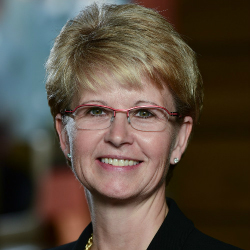

“The blockchain deployment toolkit is essential for designing solutions that work for a multitude of actors, including smaller players who may not have access to the resources required to unlock the value of blockchain technology. For this reason, the toolkit can level the playing field for small and medium-sized enterprises.
“There are many lessons to learn from the current pandemic, and this toolkit is a starting point for improving long-term pandemic preparedness and accelerating an economic recovery led by public-private cooperation,” said Nadia Hewett, Blockchain and Digital Currency Project Lead, World Economic Forum USA.
Needs identified by the World Economic Forum
The supply chain pressures brought on by the Covid-19 outbreak on global trade systems highlights an urgent need for global cooperation. The objective is to maintain and strengthen the resilience of international supply chains.
Resilience in supply chains depends on trust, transparency and integrity. It is possible, the World Economic Forum and others believe, to improve these through the responsible deployment of blockchain technologies which render a ‘shared truth’.
The current Covid-19 pandemic underscores the need for businesses and governments to improve the integrity and provenance of:
- pharmaceutical products
- medical supplies
- foods
- goods (including industrial and consumer products).

“We see an acceleration of digitalisation in Maritime Singapore, which has improved productivity and efficiency of the sector. Blockchain has tremendous potential applicability in areas such as bills of lading, cargo-tracking and trade financing. Maritime Singapore has piloted blockchain technology in electronic bills of lading used by shippers and shipping lines, and the ship registration process between class societies and ship owners.
“The Singapore Government will continue work with industry partners to push forward on this front. The Blockchain Deployment toolkit’s global best practices will be helpful for the Maritime Digitalisation Playbook that we are launching soon for our shipping companies,” said Quah Ley Hoon, Chief Executive, Maritime and Port Authority of Singapore.
The Blockchain Deployment Toolkit
Created by the World Economic Forum with the Centre for the Fourth Industrial Revolution Network and Fellows from Hitachi, Deloitte and Saudi Aramco, many others have contributed to its development. They include:
- the Centre for the Fourth Industrial Revolution UAE
- the Port of Los Angeles
- Latham & Watkins
- Cardiff Business School
- University of Berkeley
- Tech Mahindra
- Maersk Angola
- World Bank
- Inter-American Development Bank
- World Food Program.
The toolkit is the culmination of more than a year of effort which has sought to capture best practices from blockchain deployment across multiple industries. It draws on the global expertise of more than 100 organisations – including:
- governments
- companies
- start-ups
- academic institutions
- civil society
- international organisations
- technology and supply chain experts.
The toolkit tries to assist companies to:
- manage the complexities of deploying blockchain technology
- exploit and accelerate blockchain’s positive impact.
Pilots of the toolkit have occurred in a variety of different contexts by organizations developing blockchain solutions within their supply chains. Amongst these are:
- the Abu Dhabi Digital Authority
- Hitachi
- Saudi Aramco
- several SMEs.

“The Blockchain Deployment Toolkit sets a new benchmark for a comprehensive guidebook to design blockchain-enabled solutions. At a time when the technology is nascent and evolving, it helps accelerate alignment and understanding of the many considerations that both the public and private sectors face to deploy solutions responsibly,” said Linda Pawczuk, Global Blockchain and Digital Assets Leader, Deloitte Global.
Enterprise Times: what does this mean
The adoption of blockchain to tackle supply chain weaknesses, or failures, exposed by Covid-19 makes sense. The World Economic Forum is not the only one to make the leap: IBM is doing the same with its Rapid Supplier Connect initiative – though only in the USA and Canada.
Besides the need to boost economic recovery, crises such as the coronavirus pandemic should increase the pressure on both governments and businesses to establish and then maintain resilient supply chains. Those supply chains must possess on transparency and integrity, which is possible through the responsible deployment of blockchain technology.
The launch by the World Economic Forum of its Blockchain Deployment Toolkit should accelerate the uses blockchains by enterprise leaders. But this can only occur if governmental, regulatory and tax authorities play a constructive part. Sadly, the latters’ hurdles may present the most significant obstacles.


























